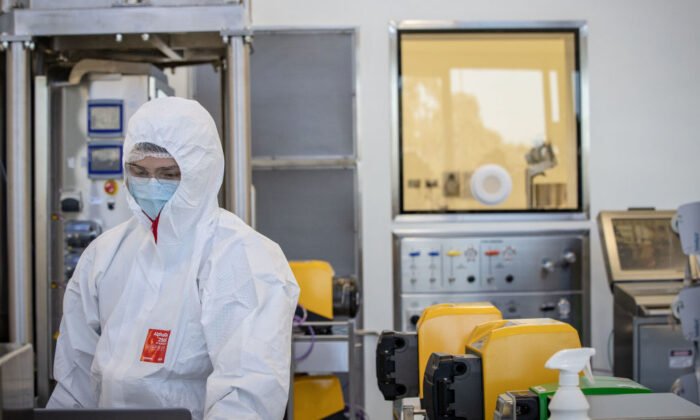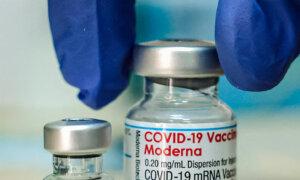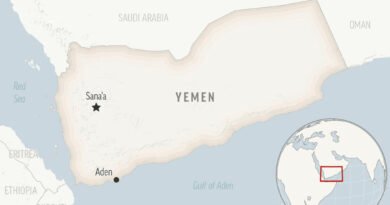CSL Generates $2.9 Billion in Profit and Distributes 110 Million Flu Vaccine Doses
CSL stated that developing new and improved vaccines is a strategic priority for the company moving forward.
Australian biotech giant CSL announced a multi-billion dollar profit in the 2024 financial year along with a significant increase in revenue.
CSL’s revenue also grew by 11 percent to US$14.8 billion. The company reported a total full-year dividend of US$2.64 per share, a 12 percent increase from 2023.
The global biotechnology company has over 32,000 employees and supplies products to 100 countries worldwide.
CSL is divided into three main divisions—CSL Behring focuses on biotherapies and plasma collection, CSL Seqirus develops vaccines, and CSL Vifor concentrates on iron deficiency therapies.
CEO Paul McKenzie expressed satisfaction in reporting a strong result for the 2024 financial year, primarily driven by the CSL Behring segment of the company.
“CSL Seqirus exceeded market expectations in a challenging market environment due to the adjuvanted
influenza vaccine FLUAD.
“CSL Vifor continues to increase iron volume in Europe despite generic competition, and we are confident in our strategy to generate long-term value from this sector.”
McKenzie expressed confidence in the company’s target of double-digit earnings growth over the medium term.
CSL Makes Progress On mRNA Vaccine Technology
In the 2024 financial year, CSL provided 110 million influenza doses and managed 349 plasma collection centers in China, Europe, and North America. Another highlight was reaching record levels of plasma collections.
CSL stated that developing “new and improved vaccines” is a key focus for the company, with an emphasis on expanding beyond influenza to mRNA COVID-19 vaccines.
The company also highlighted progress in vaccine technology, including approval in Japan for a self-amplifying mRNA COVID-19 vaccine.
CSL indicated that the global influenza vaccine market is competitive, underscoring the importance of embracing technology.
“To continue growing and innovating in the competitive global influenza vaccine market, CSL acknowledges the necessity to lead in the development and production of influenza vaccines using cell culture technology and exploring the use of sa-mRNA technology for both influenza and COVID-19 vaccines.”
In the short term, the company believes the “exciting acceleration” of new vaccine technologies will persist.
CSL also noted a decline in immunization rates following the pandemic. However, the company anticipates that its unique vaccine portfolio will continue to bring value to public health systems.
“Seasonal influenza remains a significant vaccine-preventable disease due to its high morbidity and mortality, with unmet needs across all demographics, particularly in young children with immature immune systems and in older adults where immune function diminishes over time,” CSL stated.
“CSL Seqirus’ current efforts are focused on concluding clinical work and regulatory submissions in major markets globally, enabling commercial launches in the next one to three years.”
Revenue in the CSL Seqirus vaccine business was US$2.1 billion, a 4 percent increase driven by the adjuvanted influenza vaccine.
What Else Happened During the Financial Year?
Immunoglobin (Ig) product sales totaled approximately US$5.67 billion, up 20 percent with significant growth in all regions.
“Demand for Ig remains robust due to substantial patient needs in core areas such as Primary Immune Deficiency, Secondary Immune Deficiency, and Chronic Inflammatory Demyelinating Polyneuropathy (CIDP),” the company noted.
Plasma collections momentum continued in the financial year, with the cost per liter including donor compensation and labor decreasing further.
“Significant strides have been made in digital transformation with a heightened focus on plasma center efficiencies,” the company said.
Iron volume in Europe within the CSL Vifor business continued to grow, with multiple products launched worldwide.
The company allocated US$1.428 billion to research and development, a 12 percent increase from the previous year.
Despite the positive outcomes, the company’s stock price declined by 4.58 percent in the market, closing at $294.78 per share on Aug. 13.
The company projected a revenue growth of 5 to 7 percent in the 2025 financial year. Additionally, CSL anticipates an NPATA between US$3.2 billion and US$3.3 billion at constant currency, reflecting a growth of 10 to 13 percent.
This guidance fell slightly below market expectations, potentially explaining the drop in share price.






